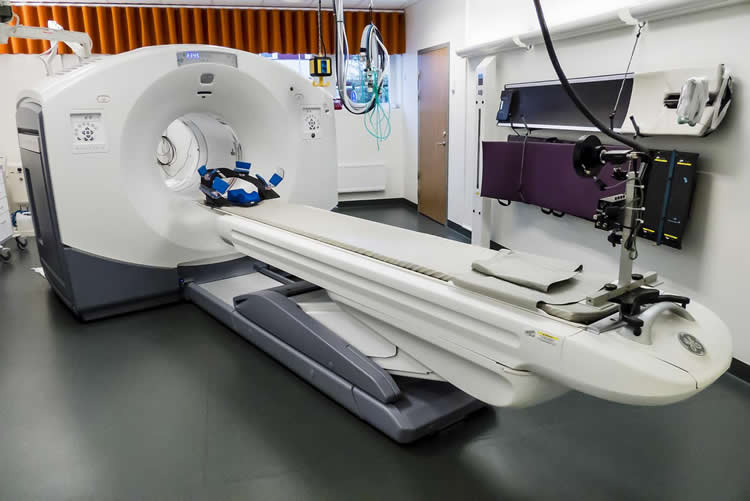Summary: A new study links the D2 dopamine receptor to long-term episodic memory.
Source: Umea University.
A European study led by Umeå University Professor Lars Nyberg, has shown that the dopamine D2 receptor is linked to the long-term episodic memory, which function often reduces with age and due to dementia. This new insight can contribute to the understanding of why some but not others are affected by memory impairment. The results have been published in the journal PNAS.
Using brain-imaging technologies (PET and MRI), memory tests and statistical analyses, Professor Lars Nyberg and his colleagues are trying to capture what happens to our memory and our brain as we grow old. The neurotransmitter dopamine is of significance to our motor functions but also to memory and other cognitive functions. The D1 receptor system has been linked to functions mediated by the frontal lobe, but it has been unknown what specific role the D2 receptor system has.
In this study, a PET camera was used to examine individual differences in the D2 system in a vast group consisting of 181 healthy individuals between the age of 64 and 68. All participants also had to take part in an all-inclusive performance test of the long-term episodic memory, working memory and processing speed along with an MRI assessment (which was used to measure the size of various parts of the brain).

Researchers could see that the D2 system was positively linked to episodic memory, but not to working memory or to processing speed by relating PET registrations to the cognitive data. Researchers could also see that the D2 system affects the functioning of the hippocampus in the brain. The hippocampus is since long linked to long-term episodic memory.
“Our results link the dopamine D2 receptor to long-term episodic memory, likely via hippocampus functioning. Episodic memory is often reduced with age and in people with dementia. Hence, impairment of the dopamine system are important to consider when attempting to understand the bases of impaired cognitive abilities due to ageing,” says Lars Nyberg, professor in Neuroscience and Director at Umeå Centre for Functional Brain Imaging (UFBI).
From Umeå University, Lars Nyberg and also Nina Karalija, Micael Andersson, Anders Wåhlin, Jan Axelsson, Anna Rieckmann and Katrine Riklund have taken part.
Funding: The study was funded by among others the Knut and Alice Wallenberg Foundation (KAW).
Source: Anna Lawrence – Umea University
Image Source: This NeuroscienceNews.com image is credited to Mikael Stiernstedt.
Original Research: Full open access research for “Dopamine D2 receptor availability is linked to hippocampal–caudate functional connectivity and episodic memory” by Lars Nyberg, Nina Karalija, Alireza Salami, Micael Andersson, Anders Wåhlin, Neda Kaboovand, Ylva Köhncke, Jan Axelsson, Anna Rieckmann, Goran Papenberg, Douglas D. Garrett, Katrine Riklund, Martin Lövdén, Ulman Lindenberger, and Lars Bäckman in PNAS. Published online June 23 2016 doi:10.1073/pnas.1606309113
[cbtabs][cbtab title=”MLA”]Umea University. “New Clues About The Aging Brain’s Memory Functions.” NeuroscienceNews. NeuroscienceNews, 29 June 2016.
<https://neurosciencenews.com/aging-brain-d2-memory-4599/>.[/cbtab][cbtab title=”APA”]Umea University. (2016, June 29). New Clues About The Aging Brain’s Memory Functions. NeuroscienceNew. Retrieved June 29, 2016 from https://neurosciencenews.com/aging-brain-d2-memory-4599/[/cbtab][cbtab title=”Chicago”]Umea University. “New Clues About The Aging Brain’s Memory Functions.” https://neurosciencenews.com/aging-brain-d2-memory-4599/ (accessed June 29, 2016).[/cbtab][/cbtabs]
Abstract
Dopamine D2 receptor availability is linked to hippocampal–caudate functional connectivity and episodic memory
D1 and D2 dopamine receptors (D1DRs and D2DRs) may contribute differently to various aspects of memory and cognition. The D1DR system has been linked to functions supported by the prefrontal cortex. By contrast, the role of the D2DR system is less clear, although it has been hypothesized that D2DRs make a specific contribution to hippocampus-based cognitive functions. Here we present results from 181 healthy adults between 64 and 68 y of age who underwent comprehensive assessment of episodic memory, working memory, and processing speed, along with MRI and D2DR assessment with [11C]raclopride and PET. Caudate D2DR availability was positively associated with episodic memory but not with working memory or speed. Whole-brain analyses further revealed a relation between hippocampal D2DR availability and episodic memory. Hippocampal and caudate D2DR availability were interrelated, and functional MRI-based resting-state functional connectivity between the ventral caudate and medial temporal cortex increased as a function of caudate D2DR availability. Collectively, these findings indicate that D2DRs make a specific contribution to hippocampus-based cognition by influencing striatal and hippocampal regions, and their interactions.
“Dopamine D2 receptor availability is linked to hippocampal–caudate functional connectivity and episodic memory” by Lars Nyberg, Nina Karalija, Alireza Salami, Micael Andersson, Anders Wåhlin, Neda Kaboovand, Ylva Köhncke, Jan Axelsson, Anna Rieckmann, Goran Papenberg, Douglas D. Garrett, Katrine Riklund, Martin Lövdén, Ulman Lindenberger, and Lars Bäckman in PNAS. Published online June 23 2016 doi:10.1073/pnas.1606309113






